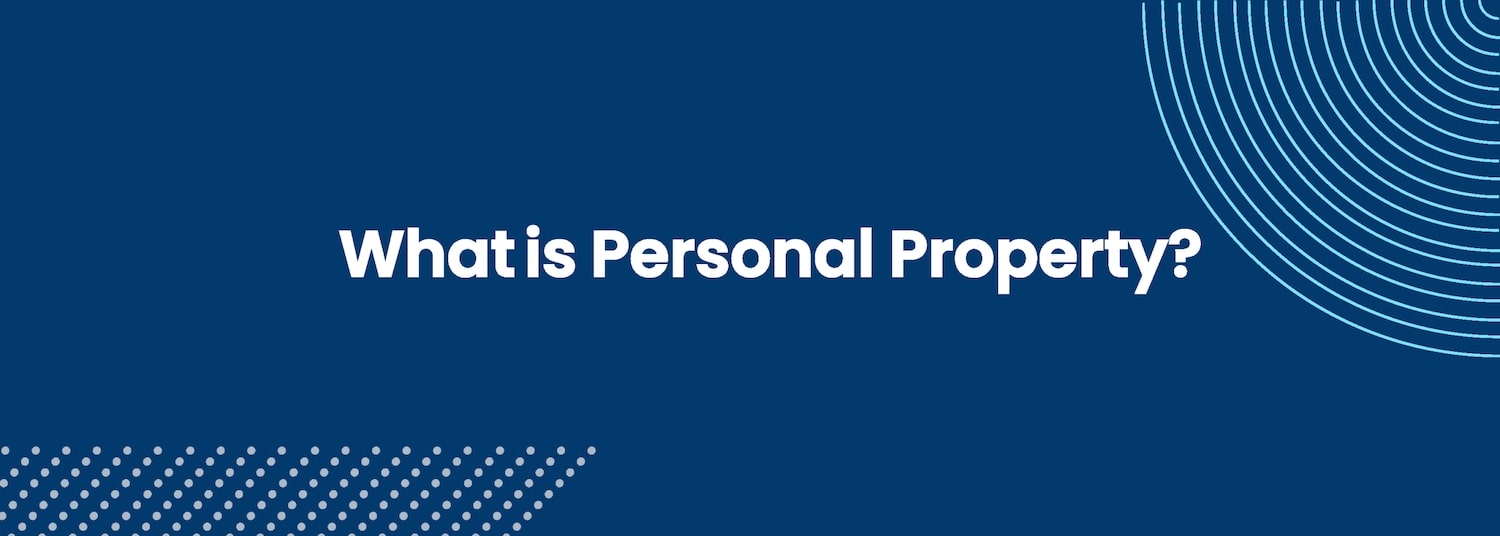Personal property is any movable property that is not permanently attached to real estate. This includes furniture, appliances, and vehicles. For landlords, it’s essential to understand personal property so you can adequately protect your real estate investment.
Most people think of property as the physical building they rent out to tenants, but there’s more to it! When managing rental properties, you must know about personal and real property.
Tangible vs. Intangible Property
Most property can be classified as either tangible or intangible.
- Tangible property is the physical property that can be touched, seen, and felt. It includes real property (land and buildings) and personal property (furnishings, vehicles, etc.).
- Intangible property is a non-physical asset with a value that can’t be touched, seen, or felt. This includes items such as patents, copyrights, and goodwill.
Personal Property Insurance
As a landlord, you’re responsible for the property you own and rent out to tenants. But what happens if that property is damaged or destroyed? That’s where personal property insurance comes in. Personal property insurance protects your belongings in a fire, theft, or other covered disaster. It’s essential to have this coverage in case the unthinkable happens.
Coverage
Personal property coverage is one of the most important types of protection for both landlords and their tenants. This coverage protects your belongings on your rental property, like furniture or appliances. If these items are damaged or stolen, your property insurance will reimburse you for the cost of repairs or replacement.
Personal property coverage is typically included in standard landlord insurance policies, but it’s always a good idea to check with your insurer to be sure.
Landlord Insurance
As a landlord, you must protect your investment property from potential risks. One way to do this is by purchasing landlord insurance. This insurance policy can help cover the cost of repairs or replacement if your rental property is damaged by a covered event, such as a fire or severe weather. It can also provide liability coverage if a tenant is injured on your property.
Various types of landlord insurance are available, and most companies will require you to take out liability coverage to receive additional protection. If there’s anything we can tell you about protecting your investment property, it’s that the more protection you have, the better!
Renters Insurance
Most landlords require tenants to have renters’ insurance to protect their personal belongings in case of fire, theft, or damage, and we recommend it for every landlord. However, some property owners choose not to mandate the use of renters insurance for their tenants.
Whether you want your tenant to carry a policy is ultimately up to you and your personal risk tolerance when it comes to your rental property.
Real Property vs. Personal Property
One of the first things you need to understand as a landlord is the difference between real and personal property. Real property consists of land and any improvements attached to it, while personal property is everything else.
That means that if you own a rental home, the building and the land it sits on are considered real property. In contrast, the furniture, appliances, and other items inside are considered personal property.
What Is Real Property?
Real property consists of land and any buildings or other structures on it, as well as any natural resources such as minerals, water, or timber that may be found on the land. It also includes any legal rights associated with the land, such as the right to farm or build on it. Landlords are vested in real property because they can earn income from leasing it to tenants.
Personal Property Tax
If you’re a landlord, it’s essential to know about personal property tax. This tax levies certain property types, like vehicles, jewelry, and furniture. Knowing how these taxes work is essential because it can affect your bottom line.
Personal property is taxed differently depending on the state in which you live. In Texas, for example, personal property taxes are paid by renters who own items worth more than $1,500. Renters are not responsible for paying this tax if they don’t own any items that fall into the category of personal property.
